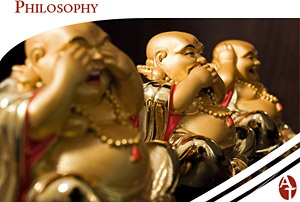

As far as I can tell the point prescription of Yin tang and Baihui was the same effectiveness as 20GB and BL23 and fluoxetine.
[Effect of Acupuncture Stimulation of Different Acupoint Groups on Levels of Stress Hormones and Serum Brain-derived Neurotrophic Factor in Depression Rats].
Abstract
OBJECTIVE:
To screen the effective acupoints for anti-depression in depression rats and to explore the mechanisms of acupuncture for relieving depression.
METHODS:
Fifty rats were randomly divided into normal control, model, “Yin-tang” (EX-HN 3)-“Baihui” (GV 20, 2-acupoints), EX-HN 3-GV 20-“Fengchi” (GB 20)-“Shenshu” (BL 23, 4-acupoints) and medication groups, with 10 rats in each group. The depression model was established by unpredictable chronic mild stress (UCMS) for 28 days. For rats of the 2-acupoints and 4-acupoints groups, EX-HN 3 and GV 20, and EX-HN 3, GV 20, GB 20 and BL 23 were punctured with filiform needles respectively before performing mild stress every time. The acupuncture needles were retained for 30 min during each intervention and the treatment was conducted once daily for 28 days. The rats of the medication group were treated by intragastric administration of Fluoxetine (0.18 mg/kg) once a day for 28 days. The rats’ anxiety-like behavior (rearing and crossing times) was detected by open-field test. The contents of adrenocorticotropic hormone (ACTH) in the pituitary, 5-hydroxytryptamine (5-HT) in the hippocampus, the cortisol (CORT) in the adrenal gland, and the brain derived neurotrophic factor (BDNF) in the serum were examined by ELISA.
RESULTS:
Compared to the normal control group, the numbers of both rearing and crossing motions in the model group were significantly decreased (P<0.01, P<0.05), while in comparison with the model group, the rearing and crossing numbers of rats in the 2-acupoints and 4-acupoints and medication groups were significantly increased (P<0.01). ELISA showed that after modeling, the content of adrenal CORT was significantly increased (P<0.01), and those of hippocampal 5-HT and serum BDNF were obviously down-regulated in the model group (P<0.01). After the treatment, the adrenal CORT levels in the three intervention groups were notably down-regulated, and hippocampal 5-HT and serum BONE evidently up-regulated in these 3 intervention groups (P<0.05, P<0.01). No marked changes were found in the pituitary ACTH contents of the model and 3 intervention groups (P>0.05), and no significant differences were shown among the three intervention groups in the levels of the aforementioned 6 indexes (P>0.05).
CONCLUSION:
Acupuncture intervention can effectively improve the unprompted activates of the depression rats, which may be related to its effects in up-regulating hippocampal 5-HT and serum BONE levels, and in down-regulating adrenal CORT content.

